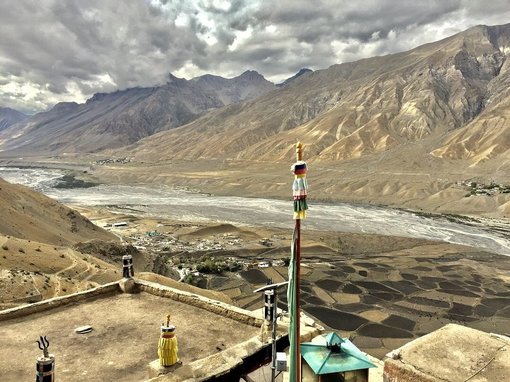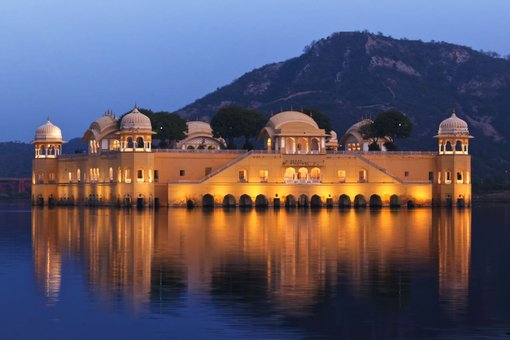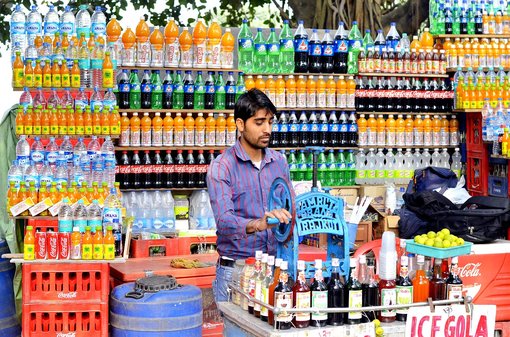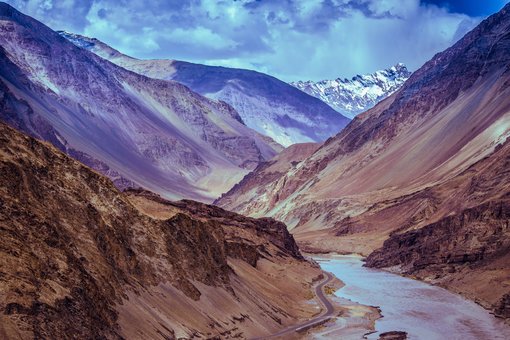Hi! My name is Janet. My husband and I have travelled to India 14 times over the past 15 years. It’s our favorite place on Earth and we absolutely love it. Each time we have visited India, our travel arrangements have been made through Perfect Travels & Tours, a Delhi based dependable travel expert company. Sometimes when deciding to visit India, travellers may be anxious about becoming sick, being ripped off or scammed. Here are some useful tips based on our 15 years of travel to this incredible country. I offer these tips below to help you experience the heart-opening and mind-blowing power of India in a safe and healthy way. Enjoy!
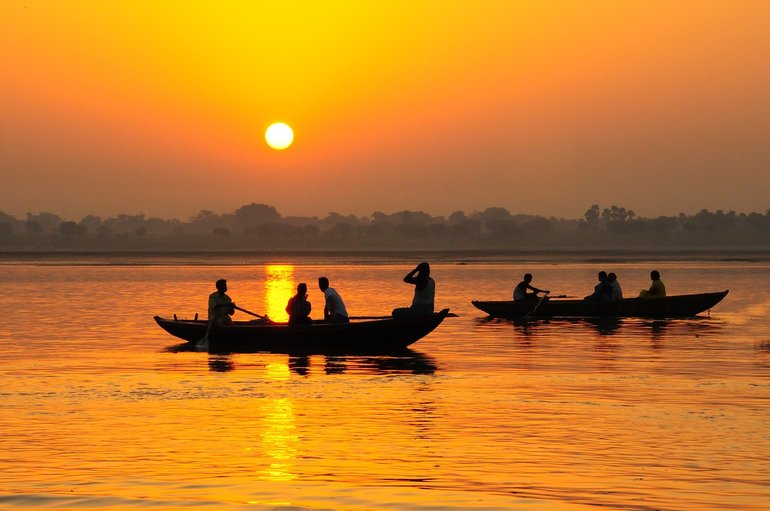
India
Tips for eating in India to avoid sickness
- Eat fresh, hot, well cooked food so that bacteria or parasites are destroyed.
- Avoid salads, juices or anything raw. Uncooked food may be washed with contaminated water. If you wish to eat raw foods, do so only in reputable establishments. (See No 3 below).
- Eat exclusively from respectable restaurants that are busy. For example, many 4 and 5 star hotels serve amazingly delicious, safe food. Also whilst travelling, some roadside dhabas and dining rooms attached to service stations are fine. Check with your driver or other tourists.
- Eat street food at your own risk. Some people brag about how they eat Indian street food and don’t get sick but it’s simply not worth it.
- Consider becoming a vegetarian while you’re there. India has one of the lowest meat consumption rates in the world and many people are vegetarian. There are many delicious vegetarian options available so we tend to avoid meat dishes.
- Family home dining is a pleasure but take precautions. Some of the best food you can experience in India can be at people’s homes. Again, it is important to be cautious. Don’t drink tap water and only have cooked food. Be aware that traditional Indian hospitality can mean that your hosts may keep piling food on to your plate.
How to deal with water while traveling in India
- Only drink bottled water. Most tap water in India is contaminated. Drink good quality bottled mineral water to avoid getting sick. Some recommended brands are Bisleri, Kinley & Aquafina. Make sure the top is intact and sealed when you purchase it.
- Stay well hydrated. India is typically hot and dry. Drink at least 2 to 3 litres water per day or even more if you are travelling during summer from April to August.
- Coconut water. Fresh coconuts can be an alternative. Don’t drink coconut water unless you’re satisfied with cleanliness of both the straw and knife that the vendor is using.
- Avoid ice in drinks. Since the ice is most likely created from a poor quality water source I advise you to not have any drinks with ice in them.
- Don’t brush your teeth with tap water. I advise you to only brush your teeth with bottled water.
- Bathe in holy rivers at your own risk. Taking a dip in the Ganges can be a magical experience but close your eyes and mouth and block your nose
How to NOT get scammed or ripped off in India
- Know that a “gift” can quickly turn into a sale. No matter what the “gift” is, be sure it is actually a gift before accepting it. Otherwise you can be quickly hit with a bill.
- Many shop keepers may try to rip you off. A simple way to minimize this is to only go to “fixed rate” shops, take a local with you or learn how to bargain like an Indian.
- Don’t give money to beggars. This can attract an army of beggars and help sustain their often drug-driven “profession”. In some areas, it is discouraged by the government.
- Be wary of drivers especially auto rickshaw drivers. Some drivers in India are renowned for their dishonesty and tricks. They may take you to the wrong hotel, quote you a price that is well over the fair rate or take you to a shop or emporium where they will receive a commission for any sale. Cars can be hired from reputable tour operators with well-mannered drivers who can help deal with locals while travelling.
- Learn to avoid fake “information offices”. If things look dodgy, they probably are. For example: no computers, no proper desks etc. They may also tell you that all trains or hotels are fully booked out due to some “event”. Be careful and make sure it’s legit before following directions from them. Handling money in India
- Be careful when exchanging or counting money. ATM’s are the safest way to get cash because the machine won’t scam you. Always count your change carefully! No matter who you are dealing with, always watch out for “miscalculations”. Use a calculator on your phone to help deter them from trying to scam you. This is especially important around large financial transactions.
- You will need to carry cash. Credit cards are only accepted at larger businesses or hotels. Therefore you will always need to carry some cash so that you can pay for taxis, auto rickshaws, cheap hotels, tips and your food etc.
- Airports give poor currency exchange rates. Use an ATM instead or if that’s not possible only get a few thousand rupees exchanged at the airport because their rates are usually very high.
- Use a Citibank ATM to withdraw more than 10,000rs at one time. As far as I know, all other ATMs across India will not let you withdraw more than $150 (10,000rs). With all the fees you may have in your home country this can be quite annoying and costly. Citibank allows you to withdraw whatever your daily maximum in your home country is e.g $500.
- Keep money and passports hidden and secure.
Tips for better hotel experiences while traveling in India
- It’s possible to stay for $2 at hotels. If you’re on a real tight budget and don’t mind about basic conditions: no pillow, no bed sheets, squat toilet and cold showers, then it’s totally possible to find a $2/night “hotel”. You may have to ask around but in every town outside of big cities you will be able find such accommodation.
- It’s also possible to stay at $500+, 5 star palaces. If you’re wanting a luxury vacation then India also offers some of the best hotel experiences in the world.
- Mid-range hotels are a balanced blend of comfort and price. The hotels in the $60 to $100 range offer mostly Western standards e.g clean sheets, hot water and a normal toilet. For these kind of hotels and the 5 star palaces, I recommend doing research on TripAdvisor or get real opinions from reliable Indian Tour Operators like Perfect Travels.
- Be aware of your hotel’s location. As with any kind of real estate, the location and proximity to the tourist attraction, temple or town can make a big difference with your experience. Do your research.
- Tip the staff appropriately. For room service of any kind at a hotel I recommend you tip between 10 and 20 rupees. If you’re staying at an upmarket hotel, you can expect to tip between 30 and 50 rupees. This should help you to get good service.
A sample packing list for India travel
- Passport pouch. Keep your money and credit cards in a pouch under your clothing. Be careful of wallets and backpacks which can be easily accessed by pickpockets and/or beggars.
- Consult your doctor before you go. Some people recommend charcoal tablets and probiotics. Take your doctor’s advice and take what is right for you.
- Electrolytes. If you develop dysentery and become dehydrated, these will save you. Even if you don’t get sick it is important to stay well hydrated in the hot, dry weather of India and these satchels can easily be added to your bottled water for an extra boost of hydration.
- First aid kit. Take a supply of bandaids and antiseptic ointment. Also antiseptic hand wipes are a must.
- Lonely Planet guide book. I highly recommend getting the latest India guide book before you go because it’s like a bible that gives all the insider tips of the most popular (and not so popular)locations around India. name is Janet. My husband and I have travelled to India 14 times over the past 15 years. It’s our favorite place on Earth and we absolutely love it. Each time we have visited India, our travel arrangements have been made through Perfect Travels & Tours, a Delhi based dependable travel expert company. Sometimes when deciding to visit India, travellers may be anxious about becoming sick, being ripped off or scammed. Here are some useful tips based on our 15 years of travel to this incredible country. I offer these tips below to help you experience the heart-opening and mind-blowing power of India in a safe and healthy way. Enjoy! Tips for eating in India to avoid sickness:
- Eat fresh, hot, well cooked food so that bacteria or parasites are destroyed.
- Avoid salads, juices or anything raw. Uncooked food may be washed with contaminated water. If you wish to eat raw foods, do so only in reputable establishments. (See No 3 below).
- Eat exclusively from respectable restaurants that are busy. For example, many 4 and 5 star hotels serve amazingly delicious, safe food. Also whilst travelling, some roadside dhabas and dining rooms attached to service stations are fine. Check with your driver or other tourists.
- Eat street food at your own risk. Some people brag about how they eat Indian street food and don’t get sick but it’s simply not worth it.
- Consider becoming a vegetarian while you’re there. India has one of the lowest meat consumption rates in the world and many people are vegetarian. There are many delicious vegetarian options available so we tend to avoid meat dishes.
- Family home dining is a pleasure but take precautions. Some of the best food you can experience in India can be at people’s homes. Again, it is important to be cautious. Don’t drink tap water and only have cooked food. Be aware that traditional Indian hospitality can mean that your hosts may keep piling food on to your plate.

